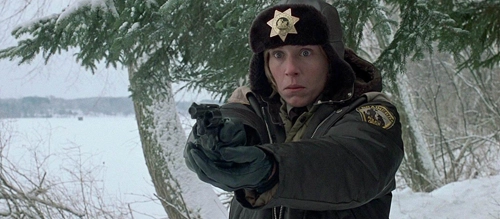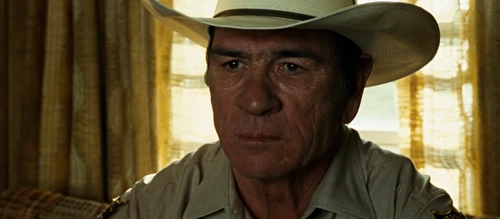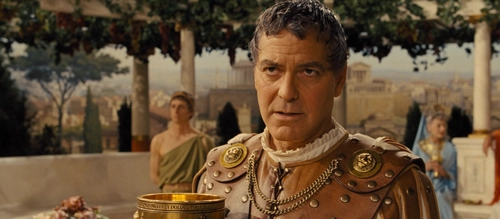Where to Start with The Coen Brothers
Brothers Joel and Ethan Coen have been making films since the early eighties. They have written, directed, and produced nearly twenty films together in what has been an extremely productive and heralded collaboration. And the fact that they have written and produced an array of projects spearheaded by other directors means that their influence is even wider reaching than the movies officially labelled ‘Coen Brothers’ movies. The pair’s films have racked up award wins and nominations, box office successes, and a cult following. While both of them have occasionally branched out for solo efforts, it is when they are combined that their power is at its strongest.
It seems Joel never had any other plans than film. As a youngster, he saved up for a Super 8 so that he and Ethan could remake the films they enjoyed on the television. Joel went on to study film at university, while Ethan’s path was slightly less direct, choosing a Philosophy degree instead. This combination goes some way to explaining the philosophical ponderings that pepper the brother’s films.
The stories the Coens concoct are convoluted, with a whole host of unusual and memorable characters. Like many famous directors, they have a regular cohort of actors – Frances McDormand, George Clooney, Tim Blake Nelson, and Josh Brolin all have more than one Coen Brothers film under their belt.
The brothers’ body of work is so varied it’s hard to offer suggestions for similar directors. Their comedies could be likened to Wes Anderson or Martin McDonagh, their historical sagas could be by Paul Thomas Anderson, and their deft handling of the crime genre could see them listed among the greats. The fact that they are able to jump so effectively from genre to genre has increased their chances of being both commercially and critically successful. Having broken down the Coen’s vast and varied filmography, here is The Film Magazine’s guide on Where to Start With The Coen Brothers.
1. Fargo (1996)

Fargo is frequently listed as the best Coen Brothers film, so it is an extremely good place to start.
The film’s focus is on Jerry Lundegaard (William H Macy), a car salesman whose bad decisions drive the plot. It’s easy to think because Jerry is the protagonist, he is the good guy, but Jerry should go down in history as one of cinema’s greatest villains.
Fargo concentrates on greed and want as Jerry’s deep dissatisfaction with his lot is punished. Crime and punishment is a theme that the Coen Brothers will return to in their subsequent films, continuing their years’ long love affair with the crime genre.
Part of the Coen’s strength is their ability to make their characters’ stupidity believable. Gallows humour takes hold as desperation drives Jerry, but there is nothing cartoonish here. While it may be ridiculous, Jerry’s actions are nothing but sinister.
Frances McDormand’s incredible Oscar-winning portrayal of Marge Gunderson, the chipper police chief investigating the kidnap of Jerry’s wife, allows for the themes of power and order to be explored.
2. No Country for Old Men (2007)

No Country for Old Men is an adaptation of Cormac McCarthy’s novel of the same name. It is one of those rare films with the accolade of being better than the book it’s based on.
Set in Texas, the Coen brothers – back working with Fargo’s cinematographer Roger Deakins – return to a similarly bleak and expansive landscape. Here, they replace the ice and snow of Fargo with wide open skies, shifting sand and disorientating heat shimmers.
Llewelyn Moss (Josh Brolin) is a working class man who discovers a large amount of money in the desert. Javier Bardem earned an Oscar as the deranged Anton Chigurh, a hitman in pursuit of the money. Tommy Lee Jones is outstanding as Sheriff Bell trying to untangle the webs the other two men are creating.
All those themes commonly associated with a Coen Brothers movie come into play; power, borders, transience, duality, chaos, inevitability and greed. Unlike in Fargo, the protagonist Llewelyn is not a villain, even if some of his decisions are terrible. Llewelyn doesn’t need to be a villain, with Anton doing such a good job.
No Country for Old Men steps away from the Coen Brothers’ darkly humorous style and is a much more serious endeavour. It still blurs genres though. Is it a Western? A Crime-noir? A literary look into the plight of working-class men in landscapes not built for them? Or all of the above?
3. Hail, Caesar! (2016)

Hail, Caesar! was not so critically revered as Fargo and No Country for Old Men, and it did not smash the box office in quite the same way. However, it was far from a flop and arguably underrated. Hail, Caesar! is an accessible, less challengingly funny gateway into what the Coens have to offer. It still utilises their trademark ability to take a million seemingly unrelated tangents and weave them expertly together, but lacks some of the darker themes that may have put some viewers off delving into their more serious work.
Like Fargo, Hail, Caesar! began with a kernel of truth. It is a fictional tale about the real Hollywood fixer, Eddie Mannix (Josh Brolin). A fixer was someone hired by movie studios to cover up scandals their actors could not help but embroil themselves in. Like when unmarried actresses get pregnant (this is the 50s remember).
When the studio’s star, Baird Whitlock (George Clooney) is drugged and kidnapped during the filming of the eponymous Roman epic, ‘Hail Caesar’, it is up to Eddie to fix it. While many of the Coen’s films are bleak or bittersweet, there is always a seed of hope planted. Hail, Caesar! is the opposite, a hopeful comedy with a seed of something more ominous lurking just off the screen.
Recommended for you: Where to Start with David Lynch
The interesting thing about the Coen Brothers’ work is that it is not confined by genre. Their projects include book adaptations, historical sagas, crime noirs, romantic comedies, and westerns. From The Big Lebowski (1998) to Intolerable Cruelty (2003), there is something for everyone.
As eclectic as their stories seem to be, there are recurrent themes woven throughout their work. One common theme that spans their films is Americanness, often looked at through a filter of quirk and marginalisation. The portrayal of working-class men also plays a huge role (much more than women), as does power and morality. Their ability to find dark humour in the gloomiest of settings also sets them apart from their peers.

